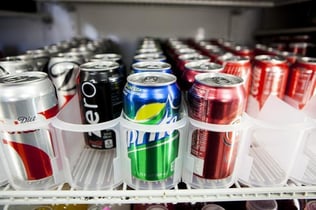 A new study conducted at the Department of Nutrition at Harvard Chan School found that the benefits of physical activity do not outweigh the risks of cardiovascular disease associated with drinking sugar-sweetened beverages.
A new study conducted at the Department of Nutrition at Harvard Chan School found that the benefits of physical activity do not outweigh the risks of cardiovascular disease associated with drinking sugar-sweetened beverages.
Sugar-sweetened beverages are the largest source of added sugars in the North American diet.
Their consumption is associated with a higher risk of cardiovascular disease, the world's leading cause of death.
For the study, the scientists used two cohorts totaling around 100,000 adults, followed for about 30 years.
The data show that those who consumed sugar-sweetened beverages more than twice a week had a higher risk of cardiovascular disease, regardless of physical activity levels.
The study found that even if the recommended 150 minutes of weekly physical activity protects against cardiovascular disease, it's not enough to counter the adverse effects of sugar-sweetened beverages.
Physical activity reduces the risk of cardiovascular disease associated with sugar-sweetened beverages by half, but it does not fully eliminate it," says Drouin-Chartier. The frequency of consumption considered in the study -- twice a week -- is relatively low but still is significantly associated with cardiovascular disease risk.
With daily consumption, the risk of cardiovascular disease is even higher.
For this reason, the researchers underline the importance of targeting the omnipresence of sugar-sweetened beverages in the food environment.
This category includes soft and carbonated drinks (with or without caffeine), lemonade, and fruit cocktails.
The study did not specifically consider energy drinks, but they also tend to be sugar-sweetened.
For artificially sweetened drinks, often presented as an alternative solution to sugar-sweetened beverages, their consumption was not associated with higher risk of cardiovascular diseases.
Replacing sugar-sweetened beverages by diet drinks is good, because it reduces the amount of sugar. But the best drink option is water.
The study provide further support for public health recommendations and policies to limit people's intake of sugar-sweetened beverages, as well as to encourage people to meet and maintain adequate physical activity levels.

